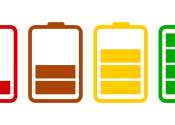A policy is typically described as a principle or rule to guide decisions and achieve rational outcome(s). The term is not normally used to denote what is actually done, this is normally referred to as either procedure or protocol. Policies are generally adopted by the Board of or senior governance body within an organization where as procedures or protocols would be developed and adopted by senior executive officers. Policies can assist in both subjective and objective decision making. Policies to assist in subjective decision making would usually assist senior management with decisions that must consider the relative merits of a number of factors before making decisions and as a result are often hard to objectively test e.g. work-life balance policy. In contrast policies to assist in objective decision making are usually operational in nature and can be objectively tested e.g. password policy.[citation needed]
A Policy can be considered as a "Statement of Intent" or a "Commitment". For that reason at least, the decision-makers can be held accountable for their "Policy".[citation needed]
The term may apply to government, private sector organizations and groups, and individuals. Presidential executive orders, corporate privacy policies, and parliamentary rules of order are all examples of policy. Policy differs from rules or law. While law can compel or prohibit behaviors (e.g. a law requiring the payment of taxes on income), policy merely guides actions toward those that are most likely to achieve a desired outcome.[citation needed]
Policy or policy study may also refer to the process of making important organizational decisions, including the identification of different alternatives such as programs or spending priorities, and choosing among them on the basis of the impact they will have. Policies can be understood as political, management, financial, and administrative mechanisms arranged to reach explicit goals.[citation needed]









